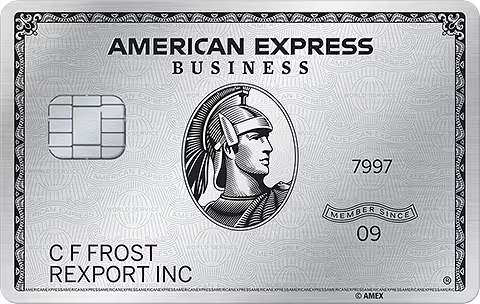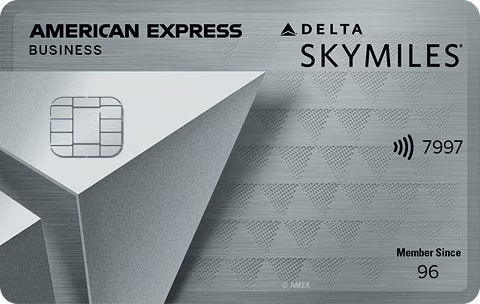How I Stopped Overspending on Credit Cards
At your worst times, credit cards can be your biggest blessing.
It can help you recover from a job loss. It can help you with unexpected medical emergencies. And, during non-emergency times, it can help you earn points for free travel.
On the other hand, during your good times, credit cards can be a curse.
With such easy access to money that’s not your own, and fueled by a capitalistic society that’s always busy telling you that “you are not enough”, you can keep swiping and buying things without noticing the huge credit bill you are racking up.
To make matters worse, credit card companies don’t make this any easy, by hiding fees and interest charges under heavy finance jargons.
If you are someone who’s paying only the “minimum fee” month over month, before you know it, you will be drowning in debt.
In this blog post, I will explain a few systems that I have put in place to stop myself from overspending on credit cards.
Let’s get started.
A Separate Spending Account
Most people in the US have one checking account that they use to pay all their bills. Not only bills, people use the same account to pay off their credit cards.
By keeping everything in one checking account, you run the risk of not “paying yourself first” but instead paying others (such as the banks).
What do I mean by that?
A couple of years ago, I used to use my one checking account for all the following:
Credit card bills
Utilities / Rent / Insurances
Funding my investment accounts
Transfering money into an HYSA
In reality, what that meant was, every week I used to pay my credit cards, any other bill that’s due, rent if it was the first of the month, and finally, with whatever was remaining, I bought a few stocks or transferred some money into an HYSA.
Once I moved to my new system that I outline here, the whole game changed!
I started using 2 checking accounts:
General Account
Spending Account
Every paycheck is split between these two accounts.
Through the General Account, I pay myself first:
Funds recurring weekly investments
Puts money into an HYSA for upcoming rent and car payments
Puts money into an HYSA to add to my emergency fund
Through the Spending Account, I do one thing only — “pay others”:
Insurances, utilities and other bills
Pay off my credit card bills
By dividing incoming money into these 2 buckets, I make sure nothing eats into my investment and saving funds.
More importantly, given I can pay off my credit cards only from my “Spending Account”, it creates an artificial scarcity.
In a way, I set myself a budget. The cost of exceeding the budget is failure to pay my credit card bill on time, which means paying interest (something I would absolutely never do!).
That’s why, when I am paying off my credit cards every Sunday by transfering money from my Spending Account, I have full transparency into how much money I can spend in the next 1-2 weeks.
Never Sign Up for 0% APY Credit Cards
Unless you are going through something in life, never sign up for a credit card for its 0% APY promotional offer.
What does 0% APY mean?
It means you pay zero interest when carrying balance from one month to the next.
Usually, most cards come with anywhere between 6 to 18 months of promotional 0% APY offers. After that set term, the APY reverts back to something crazy like 20%.
With 0% APY cards, it’s very easy to spend recklessly, while shifting the problem of “needing to pay it off” to your future self.
18 months later, you are left with a 10K credit card bill and not enough to pay it off immediately. Hence, starts the infamous debt spiral.
Because of this, I always steer clear from 0% APY cards.
Don’t Autopay Credit Cards
This will be a controversial one.
Everyone recommends turning on AutoPay so that you don’t miss paying your credit card bill. There’s a lot of benefit to this. By never “forgeting” to pay your bill on time, you won’t be charged any interest.
However, I think you have more to lose by taking such a “automated” approach to credit card bills.
When you turn on AutoPay, you tend not to look at your credit card bills as often as you should. You know that you don’t have to manually pay it off, because the automation will take care of it on time.
By doing so, you stop proactively checking your expenses.
Instead, I recommend paying off your credit card in full every week or 2-week by signing on to your online account. This also gives you the opportunity to take a peek at your recent transactions.
When you start doing that, you will get a sense of your average weekly spend. On certain weeks when your spending spikes, you can recognize that at a quick glance.
Turn on Notifications
If you have followed my writing for a while, you will know how much I hate phone notifications.
I religiously audit my notification alerts and keep everything off, but the essentials.
What are essentials? One of them — banking apps!
I have notifications turned on for my American Express, Chase, Capital One, or any other bank apps with a linked credit card.
I have set the threshold to $0 — so literally all transactions send me a notification.
Apart from the obvious benefit of staying on top of fradulent charges, this is a great way to develop mindful spending habit.
It’s the opposite of “out of sight, out of mind”.
Instead, all your expenses will be “in sight” every time your card is swiped or some subscribtion is charged.
Closing Thoughts
Okay folks, that’s all for today.
If you have read it so far, thank you for your time. I hope you found it valuable.
If you want to stay connected, here are a few ways you can do so: follow me on Medium or subscribe to my website.
Recommended Cards
Free ConsultationSimilar Posts
June 1, 2025
$1,500 Hotel Nights for $0 in the North Georgia Mountains
New hotel strategy using American Express Gold and Hilton Surpass credit cards.
July 2, 2024
$3,712 of Free Travel in 2024 Using Credit Card Points
5 Cities. Business Class Flights. Free Hotel Nights.
March 16, 2025
Best Debit Cards for Digital Nomads
Discover the only two debit cards digital nomads should consider for fee-free ATM withdrawals, zero foreign transaction fees, and instant security features.
August 13, 2024
Making a Childhood Dream Come True with Credit Card Points
Staying in South Carolina and watching Manchester United — Liverpool for FREE!
January 26, 2025
5 Best Credit Cards for Software Engineers
Discover the 5 best credit cards for software engineers in 2025. Maximize rewards on cloud computing, gadgets, dining, and more. Find the perfect card for your spending habits today.
January 4, 2024
My 2024 Credit Card Strategy
Core setup, new cards, travel redemptions, and hotel, flight, and car rental elite statuses.
August 6, 2024
How I Stopped Overspending on Credit Cards
Earn rewards without paying interest and late fee.












